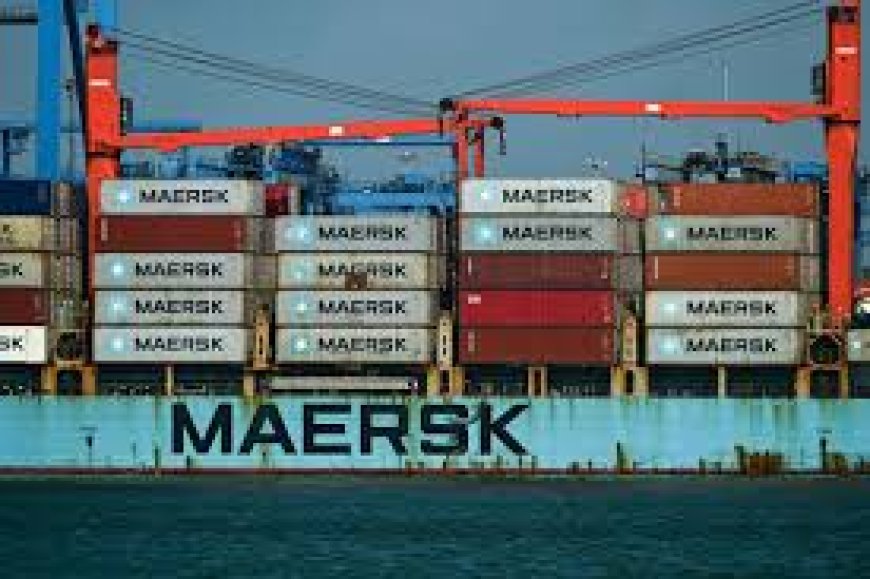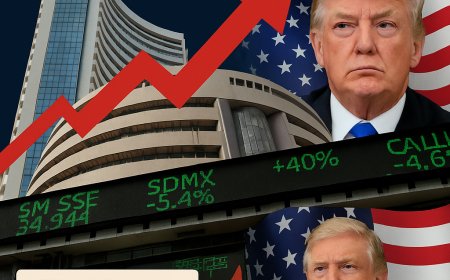Maersk halts stops in Israel's Haifa due to Iran-Israel conflict
Maersk halts operations at Israel’s Haifa Port due to rising tensions between Iran and Israel, impacting regional trade and shipping logistics.

Maersk Suspends Port Calls to Israel's Haifa Amid Escalating Iran-Israel Tensions
Copenhagen/Jerusalem, June 20, 2025 – Danish shipping giant A.P. Moller-Maersk has temporarily halted its port operations at Israel’s Haifa port due to escalating geopolitical tensions between Israel and Iran. The move comes as a precautionary step amidst growing concerns about the safety of maritime operations in the Eastern Mediterranean following recent military escalations in the region.
Heightened Security Concerns Prompt Action
Maersk’s decision follows a noticeable spike in regional hostilities, including drone attacks and missile threats believed to be connected to Iran-backed groups operating near Israeli territories. The Eastern Mediterranean, once considered a stable commercial corridor, has recently seen increased military surveillance and naval presence from multiple countries.
In a statement issued late Wednesday, Maersk said, “The safety of our crew and vessels is our top priority. Due to increased security risks in and around Haifa Port, we have decided to temporarily divert our vessels from the region until conditions improve.”
Impact on Regional Trade and Supply Chains
Haifa Port, Israel’s largest port by volume, serves as a crucial hub for goods moving between Europe, the Middle East, and Asia. Maersk’s withdrawal is expected to significantly disrupt cargo schedules, especially for container traffic that relies on Israel for transshipment and inland distribution.
According to data from the Israel Ports Development & Assets Company, Haifa handled over 1.5 million TEUs (Twenty-foot Equivalent Units) in 2024. Maersk accounted for nearly 20% of the port's container throughput last year.
"Rerouting cargo to alternative ports like Ashdod or even Limassol in Cyprus will inevitably lead to increased costs and delays," said Gilad Barnea, a maritime logistics analyst at Tel Aviv-based firm Albatross Shipping Consultancy. “The geopolitical climate has turned what used to be a logistical detour into a risk assessment exercise for global shippers.”
Industry-Wide Caution Builds
Maersk is not the only company reevaluating its Middle Eastern port strategy. Shipping competitors such as Mediterranean Shipping Company (MSC) and CMA CGM are reportedly reviewing risk exposure to Israeli ports, although no similar suspensions have been announced publicly.
Insurance premiums for vessels docking in Israeli waters have also surged in the past few weeks. Lloyd’s of London, one of the world’s leading maritime insurers, has raised the region’s risk profile to "elevated," a classification usually reserved for conflict zones like the Red Sea and the Strait of Hormuz.
Rebecca Tran, an analyst at Lloyd’s Maritime Intelligence Unit, noted, “Any escalation in this corridor has the potential to drive up shipping costs globally. While the Red Sea garners headlines, the Eastern Mediterranean is now equally volatile for commercial traffic.”
Geopolitical Drivers of the Crisis
The underlying conflict stems from the latest cycle of hostilities between Iran and Israel. Israeli intelligence agencies have accused Iran of orchestrating cyber and drone attacks via proxy groups in Syria and Lebanon. Tehran has denied direct involvement but has warned of retaliation against perceived Israeli aggression in the region.
Last week, Israeli airstrikes targeted what they claimed were Iranian-backed militia installations near Damascus, prompting condemnation from Tehran and further threats against Israeli maritime and civilian assets.
The Israeli Defense Forces (IDF) have increased their naval patrols along the coast, and military advisories have been issued for vessels near Haifa and Ashkelon.
Market Reaction and Investor Sentiment
Maersk shares (CPH: MAERSK-B) were down 1.8% in early trading on Thursday following the announcement. The broader European transport sector index also posted mild declines amid investor worries about supply chain disruptions and insurance cost escalations.
Commodities markets responded with a modest uptick in crude oil futures, given fears that broader regional instability could spill into the Suez Canal zone, a vital artery for global oil and gas shipments.
“Investors are bracing for ripple effects across multiple sectors—shipping, energy, logistics, and insurance,” said Tobias Engel, senior equity strategist at Nordea Markets. “This is a moment where geopolitics and global trade intersect, and risk premiums are being recalibrated.”
Outlook and Contingency Planning
While Maersk has not offered a timeline for the resumption of services in Haifa, it confirmed that rerouting plans are being executed to maintain continuity for affected cargo.
Israeli port authorities are working closely with shippers to divert some of the traffic to the southern port of Ashdod, which remains operational though under heightened security surveillance.
Maersk emphasized that customer cargo tracking will remain active and that updates will be provided in real time through its digital platforms.
"We are monitoring the situation closely and will resume operations once it is deemed safe to do so," the company said in its official statement.
Maersk’s suspension of services to Haifa is emblematic of the wider economic costs of the Iran-Israel conflict. As security concerns mount, global trade flows through the Eastern Mediterranean may face continued disruption. The coming weeks will be critical in determining whether this is a temporary setback or a sign of more enduring instability in the region’s commercial shipping lanes.
What's Your Reaction?
 Like
0
Like
0
 Dislike
0
Dislike
0
 Love
0
Love
0
 Funny
0
Funny
0
 Angry
0
Angry
0
 Sad
0
Sad
0
 Wow
0
Wow
0












































































